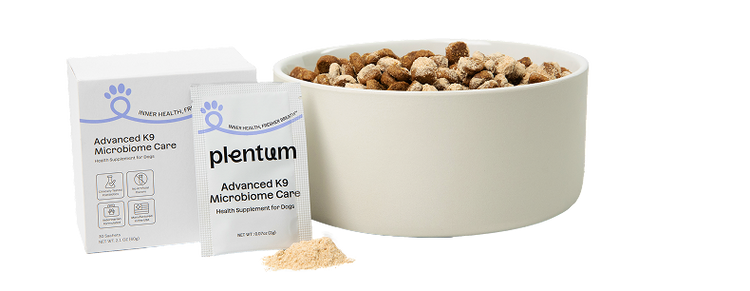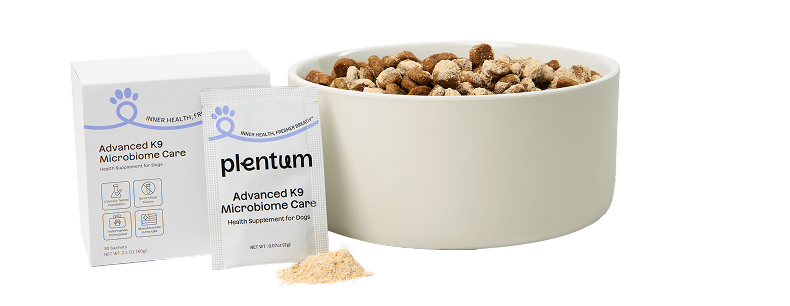
Understanding Pet Health Supplements

Pet health supplements represent a wide range of products which help fill nutritional deficiencies while promoting particular health benefits for dogs. These include vitamins, minerals, probiotics, omega-3 fatty acids, joint support compounds, and various herbal extracts. The quality and regulation of these supplements remain critical concerns, as oversight is limited compared to human dietary supplements. Manufacturers create their own quality standards but FDA inspections have proven that these private standards fail to guarantee proper product quality.2
The Association of American Feed Control Officials (AAFCO) regulates pet supplements but veterinary science advances our knowledge about the best supplementation methods. Multiple commercial supplements do not fulfill minimum nutritional requirements and some products contain harmful heavy metal contaminants according to research.3 4
Nutritional Deficiencies in Dogs

The way nutritional deficiencies appear in dogs depends on their breed and age as well as their personal health situation. Young dogs under one year are most affected by nutritional alopecia because of zinc and copper deficiencies. The condition of chronic enteropathy in dogs leads to vitamin deficiencies primarily affecting B12 (cobalamin) and folate while specific breeds exhibit genetic tendencies to absorb cobalamin selectively.5
Signs of nutritional deficiencies include hair loss, skin disorders, decreased hemoglobin content, reduced red and white blood cell counts, weakness, and impaired immune function. Large breed dogs face a higher risk of developing calcium and vitamin D deficiencies during their growth stages which could result in developmental orthopedic diseases. The amino acid threonine requirements appear consistent across different breed sizes, with studies showing no significant difference between Beagles and Labradors.5
Probiotics for Dogs
Probiotics for dogs represent one of the most researched areas of canine supplementation. Multiple scientific studies show that particular probiotic strains effectively enhance dog's gut health and immune function and general health status. Studies show that supplementation with Lactobacillus strains, including L. plantarum, L. acidophilus, and L. rhamnosus, can enhance digestive health without adverse effects on body weight or basic physiological parameters.6
Research indicates that healthy dogs exhibit distinct responses to synbiotic supplements which depend on their initial microbiota profile. The most effective probiotics appear to enhance beneficial bacteria like Bifidobacterium and Lactobacillus, which provide anti-inflammatory properties vital for maintaining balanced gut microbiota. The effectiveness of probiotics differs between dogs so owners need to find individualized methods for supplementing their pets.7
Omega-3 for Dogs
The scientific evidence shows that Omega-3 provides dogs with several health benefits. Research shows that omega-3 enriched diets and supplements have direct clinical analgesic effects for dogs with osteoarthritis. The main omega-3 fatty acids EPA (eicosapentaenoic acid) and DHA (docosahexaenoic acid) have anti-inflammatory effects and promote joint health and cognitive function and general well-being.
Research shows that supplementing dogs leads to higher Omega-3 Index levels which results in better quality of life and reduced pain scores. The absorption rate of omega-3 fatty acids depends on their source because krill meal phospholipids demonstrate better absorption than fish oil triglycerides. The research shows that omega-3 supplementation during gestation and weaning is safe for developing dogs and does not negatively affect their hip joint formation.
Canine Joint Support
The main components of canine joint support supplements include glucosamine, chondroitin and omega-3 fatty acids which have received the most scientific attention. Scientific evidence supports the use of specific bioactive collagen peptides (BCP) for improving gait and quality of life in dogs with osteoarthritis.The supplements show better effectiveness than omega-3 fatty acids and vitamin E combinations according to controlled studies.
The combination of antioxidants with mitochondrial cofactors and omega-3 fatty acids in joint support supplements provides advantages for dogs of all ages including working breeds such as German Shepherds. Multiple compound nutritional supplements lead to substantial improvements in clinical signs which include lameness and pain response and range of motion and joint swelling according to studies that show joint scores advancing from 7.40 to 3.80 in treated groups.
Holistic Pet Care and Supplements

The practice of holistic pet care uses supplements as part of total health management instead of depending on single products. The method evaluates the dog's complete life situation together with its breed requirements and environmental conditions and personal health condition. The field of veterinary science now promotes integrative healthcare methods which unite appropriate nutrition with specific supplements and exercise routines and preventive medical practices.
The holistic model shows that supplements work best when used to treat particular deficiencies or health conditions instead of being taken as general health boosters. The supplementation of trace minerals in senior dogs delivers specific advantages for hair coat quality and activity levels particularly to larger breeds such as Rottweilers Golden Retrievers and Labrador Retrievers. The addition of plant-based ingredients with phytonutrients to well-balanced canine diets provides additional health benefits when done correctly.
The Breed-Specific Connection
The success of supplements depends on the nutritional requirements of different dog breeds together with their individual health needs. Brachycephalic breeds need special supplementation methods because their health issues are different from those of larger active breeds. Working dogs including drug detection German Shepherds require supplements with branched-chain amino acids and carnitine and vitamins which help their energy metabolism and decrease exercise-induced stress.
Research indicates that various dog breeds exhibit different reactions to supplements yet the underlying causes for these variations remain unclear. The way dogs process and react to different substances depends on their breed-specific pharmacogenetic characteristics which indicates that personalized supplementation plans could work better than standard protocols.
Quality and Safety Considerations

The supplement industry encounters major obstacles when it comes to maintaining quality control and standardization. The evaluation of commercial veterinary hemp supplements showed that 18 out of 29 products followed FDA labeling requirements but multiple products contained heavy metal contaminants. The use of vitamin-mineral supplements does not ensure that users will meet their minimum nutritional requirements and may lead to mercury poisoning.
Third-party testing and certificates of analysis (COAs) serve as vital instruments which veterinarians and pet owners need to confirm product quality and safety. The absence of standardized regulations similar to human supplements forces veterinary science to base its recommendations on individual product testing and clinical evidence.
Evidence-Based Recommendations
The current scientific evidence supports the use of specific supplements for particular health conditions and breed-related needs. The research shows that probiotics work well for dog digestive health across different breeds and omega-3 for dogs has proven benefits for joint health and inflammation control. The effectiveness of canine joint support supplements depends on the use of clinically validated ingredients together with proper dosing.
The key to successful supplementation lies in identifying specific nutritional needs through veterinary assessment, choosing high-quality products with verified potency and purity, and monitoring individual responses over time. The most sustainable results emerge from holistic pet care methods which combine supplements with complete health management approaches.
Conclusion
The proper application of dog supplements delivers vital health advantages to particular breeds together with individual requirements. The success of this approach depends on evidence-based selection of products and quality products and professional veterinary guidance rather than broad-spectrum supplementation approaches.





